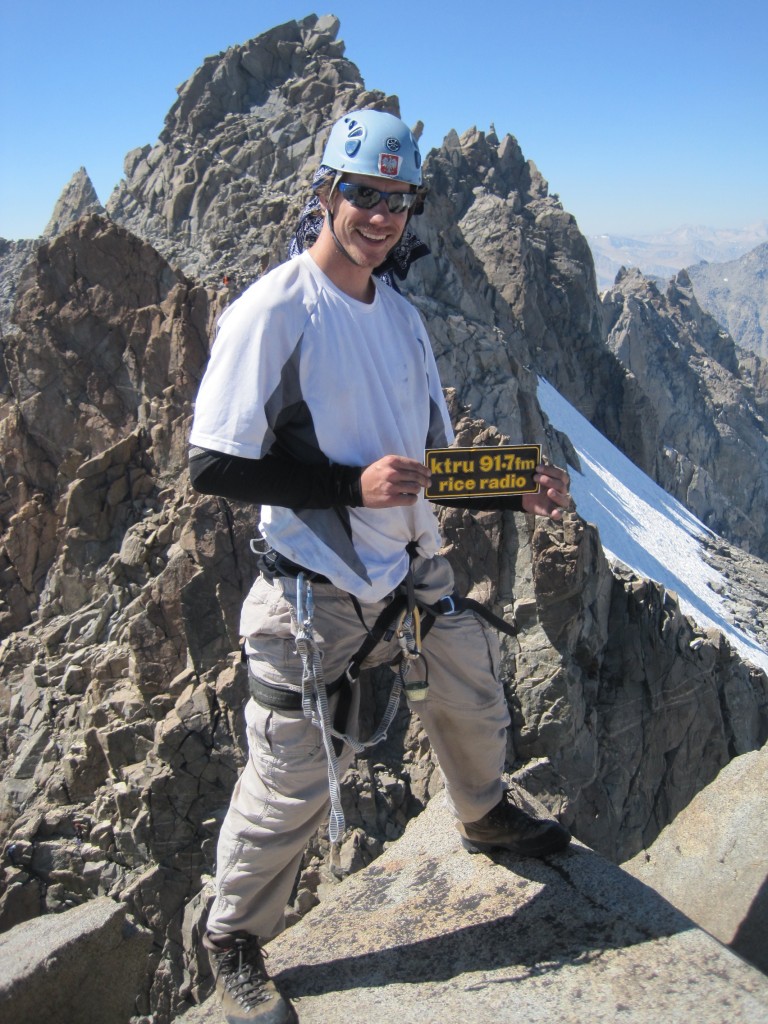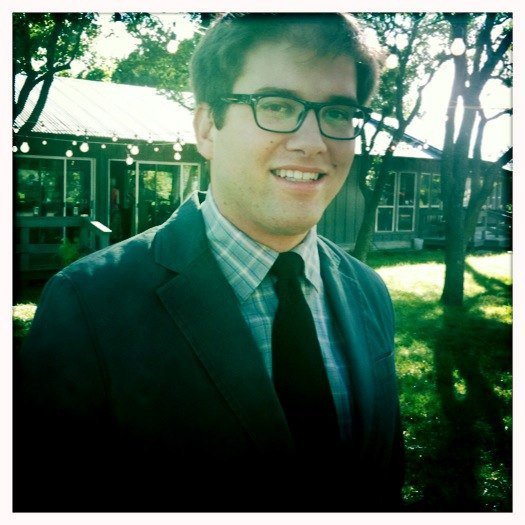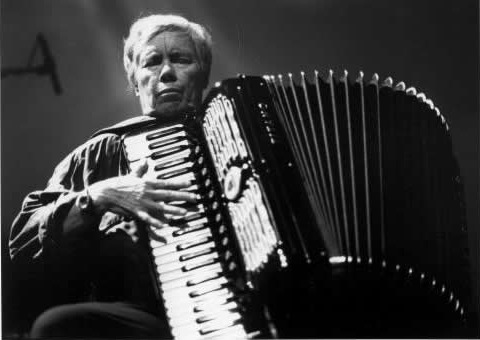It’s only too bad that we weren’t quite fast enough to pass the tax last year – but then again, it seems very unlikely that winning two-thirds of the vote would have changed anything about the sale, considering the administrators’ blatant disregard of student opinion when they can get away with it. They are, after all, “all the time acting like an enterprise,” as Leebron said, and student input apparently weighs very little in the scales of business. Please prevent the administration from getting away with this sale, for even if KTRU means nothing to you, the next atrocity might hit closer to your heart – visit www.savektru.org to see what you can do to help.
Carina Baskett
Martel ’10
former KTRU DJ director
Testimonials and support
Rice Thresher: Letter to Editor
From alum Greg Cagle
I recently heard about the planned sale of KTRU, and applaud your efforts to save it. I was a KTRU disc jockey from 1979-1982, and it was a great experience. While many college radio stations allow some student involvement, KTRU was unusual in that it was completely student run, and open to everyone.
During my first semester at Rice, a fellow student at Hanszen College talked a lot about KTRU, and I remember thinking, “I’ve got to try that!” This was unusual for me, because I have a fairly quiet personality, and a radio show is a sort of public performance. The audience isn’t right in your face, though, and I loved the idea of having a musical conversation with them. Back in those days, the FCC required DJs to have a license (third class radiotelephone operator license with broadcast endorsement), so I checked out a bicycle from the Hanszen bike room and rode it downtown to a government office where I could take the test. Within a few weeks, I had mastered the basics at the station and I was on the air. How many 18-year-olds get that opportunity?
Did I mention that it was a lot of fun? I even ended up playing a regular part in a silly comedy series. President Leebron’s letter to alumni hinted that KTRU has outlived its usefulness, but I find that hard to believe. It got me involved in both the Rice community and the greater Houston community in a way that simply wouldn’t have happened otherwise. And I truly believe that KTRU has been good for the community outside the Rice hedges as well. It provides a level of diversity that commercial stations will never match. Its value is primarily cultural, not academic or financial, and is not fully appreciated by President Leebron and the Board of Trustees.
I can’t say I’m surprised. For decades now, Rice University’s leaders have been chronically insecure about its prestige and reputation. Rice students don’t have this problem, but the Board of Trustees does. They desperately want Rice to be always mentioned in the same breath with Harvard and M.I.T., and are willing to pay any price necessary to get there. Their core strategy has been to add more graduate programs and top research talent so that Rice can make national news more often with announcements of exciting research discoveries. That’s not inherently bad, but it comes at a price. It takes a lot of money to fuel that growth. They’ve been able to raise some of it by increasing tuition and the undergraduate population, but they are always hungry for more.
Of course, Rice isn’t only as good as Harvard or M.I.T., it is in some ways actually better. There are many reasons, but some of my favorites are Rice’s small size, unique culture, and historical emphasis on the undergraduate experience. KTRU is a beautiful example of Rice’s culture, but the trustees don’t care about that. To them, it is simply a $9.5 million asset that isn’t making Rice famous. Their quest for world recognition has required many sacrifices in what were once Rice’s core values, and you may be sure that more such sacrifices are planned for the years ahead. If there were a way for them to sell Beer-Bike for $9.5 million, they would do so with no regrets. Yes, change is inevitable, and Rice needs to keep moving forward, but some traditions really are worth keeping.
Greg Cagle
Hanszen 1982
KTRU 1979-1982
From musician and community member Melissa C.
As a longtime Houston Music Professional, former staff of alternative weekly “Public News,” co-founder of the Houston Music Council and former Talent Buyer for Fitzgerald’s nightclub, I feel I have strong standing and an opinion to be valued in this matter. Having represented musical artists from Houston, two of which were voted “Band Of The Year,” I must make the point that the success of these were due in large part to exposure and support by KTRU. Without such a venue, promotion of young and new artists from our area will suffer greatly, if not falter.
College Radio has been the proving ground for new music/performance artists in the U.S. for decades.
While KACC 89.7FM, the Alvin Community College station, does provide some limited local artist support, their signal footprint does not reach a majority of the Houston listening area AND does not subscribe to a “college” radio format. Rather the majority of their airtime is devoted to “out of copyright/royalty reach” classic/old rock. KPFT 90.1FM by non-profit status charter must divide their airtime among community/public affairs programming which is then again subdivided into cultures and issues. The total “music” airtime is thereby severely limited and even that is mostly relegated to folk/country/singer-songwriter fare with only ONE two-hour show per week strictly devoted to NEW artists. Most of the other music programming is at least fifty percent “old copyright/royalty free” content if not more.
The sale of KTRU, our last remaining, nationally recognized and lauded “college” radio stations to KUHF, another Houston market university who by the way has no plans to retain the format, much less integrate station operation with any part of the student curriculum or utilization as an educational entity as KTRU has always maintained, is a non-starter. KUHF even recently gave up its NPR subscription to UPenn’s World Cafe show!
When it comes to the consolidation of media outlets in our multi-million consumer market of Houston, there is great danger in reduction of diversity. Our vast physical and listener market represents one of the World’s most internationally populated multi-cultures. KTRU’s format has always recognized and honored this community as reflected by various music shows. From Reggae, to Americana, to Experimental, and Hardcore the offerings provide something for just about everyone. Not to mention the recent live symphony programming of Classical concerts offered through Rice University’s Shepherd School of Music.
Broadcast radio may seem to be in a technological decline, but I assure you that most of us cannot afford subscription satellite radio. We are in strong local (with even some international and a great deal of Alumni) support, when we say we treasure KTRU.
The corporate university entities went about this transaction under veil of utter secrecy, perhaps in violation of the law, because they knew there would be a huge public outcry against the sale. That alone should speak volumes to the FCC and give cause to reconsider permitting the sale. Please do exactly that. Please block the sale and preserve what little remains of the diversity of our media culture in Houston.
Thank You,
Melissa C
From Alum Ben Horne
 I am a PHD Candidate in economics. The basic premise is that money rules the world, and people are motivated by it.
I am a PHD Candidate in economics. The basic premise is that money rules the world, and people are motivated by it.From alum Walter Underwood

I just received an e-mail from Rice President David Leebron explaining the sale of KTRU’s spectrum, transmitter, and antenna to the University of Houston. This will give KUHF two powerful transmitters for their NPR and classical music snoozefest, replacing the eclectic voice of Rice. Leebron pointed out that KTRU’s Arbitron numbers were invisible, that the $9.5 million from the sale would help fund the new East Servery (kitchen), and that the station would continue on the Internet at ktru.org.
I was a KTRU DJ from 1979 to 1981 and I helped install the new antenna on top of Sid Rich that finally got the signal beyond the hedges.
I sent him this reply.
Something important has been lost—students volunteering their time to operate a station that meets FCC regulations. An internet station cannot provide that. It is the difference between playing sports in a refereed league that enforces penalties and a pickup game on the quad. This is the same as dropping a varsity sport and pretending that intramural sports are the same thing. No one fines you $7000 per swear word on the internet.
Taking on real responsibility outside of class should be available to every undergraduate at Rice. I was on the Will Rice Diet, The Thresher, and at KTRU and I learned different things at each of them. When Rice gives up one of those opportunities, the undergrads lose out. You cannot measure the undergraduate experience with Arbitron.
I’m glad that my efforts to make KTRU successful have been so profitable for Rice, because I’m not inclined to donate again. I hope my college mates at Will Rice enjoy the new 91.7 Memorial Servery.
wunder
Walter Underwood
Will Rice 1981
From alum Joshua Katz
Dear President Leebron and the Honorable Members of the Board;
I know you have received many letters on this subject, so I’ll attempt to be brief. I love Rice University and would not be the person I am today if I had matriculated at any other school. I write to let you know that you have made a grave mistake both by authorizing the sale of KTRU and the manner in which you have handled this transaction.
When I was a high school senior in the mid 90s in suburban Houston, I stumbled upon KTRU. They were playing the song “Underground” by the group Ben Folds Five, and I fell instantly in love with the shambolic song and station. It would be several years before commercial stations throughout the country would catch on and make the band a household name. I decided to see the group in concert. Not knowing any other fans of the band and not wanting to go entirely alone, I reached out to a message board and was instantly befriended by a group of Rice students, many of whom also happened to be KTRU DJs. They were intelligent and quirky and creative and basically everything I, a somewhat dorky high schooler, wanted to be. To this day, 14 years later, that group includes some of my best friends.
When it came time to go to college, I was choosing between Rice and some other schools that frankly were more affordable. But I had already met the kind of students that attend Rice, and listened frequently to the eclectic and broadening and do-it-yourself student-run radio station that called out to all of Houston: “This is what Rice is about.” I knew that Rice was the only place I could really see myself.
And that proved to be entirely true. Rice was such a welcoming environment for intelligent, different, open minded people and encouraged one and all to get involved and expand their limits. Despite having no background in theatre, I performed in and directed several plays. I never played highschool sports, but was on dozens of intramural teams. I had no background in student government, but became president of Wiess College. And I definitely had no broadcast experience, but there was KTRU, student run and operated and a place where I literally found my voice.
And that, by anecdote, is what is unique about Rice. There are a lot of good academic schools in America and in Texas, of which Rice is one. But there are no schools that I know of that encourage or even allow that kind of expansion of who you were to who you can become as a person.
That is no longer the case. With your sale of KTRU, you have signaled that the institutions that made Rice unique are for sale to the highest bidder, without notice and without paying any respect to the intelligence or hard work of the students. KTRU as a web-only presence will whither and die on the vine without the community that terrestrial radio provides, or the music and access to artists provided by record labels to FM stations. Some people came to Rice strictly because of KTRU; others came to Rice because it was the kind of school where student-driven institutions such as KTRU could exist in the first place. Nonetheless, you have determined that it was an “underutilized asset” and it has been sold off like so much chattel. It’s reasonable for any other organization on campus to wonder who may be next.
There’s little I can say about the sale of KTRU that hasn’t already been written to you more eloquently, or with more detailed analysis of why a student built and operated station run on donated equipment isn’t yours to sell, or why the secretive nature of the sale is such a betrayal of the student trust.
I write to tell you this: Given the extreme cost to attend the university (somewhere over $45,000 per year for undergrads), I can’t imagine recommending to anyone that the school is worth the price, or that it provides an environment for learning that is much different or more special than its rivals. I also can’t imagine supporting the school with donations after the callous and disrespectful way that it has sold off an institution built up by the labor of its students and donors with only the flimsiest of pretenses. If a capital campaign to fund the new serveries failed to meet its objectives, why must students pay the price?
It’s painful to write this, because I loved Rice and did all I could to shout that love from the rooftops. But the Rice that I felt that way about seems to now be gone.
Sincerely,
Joshua Katz
Wiess ‘01
Rice Thresher: Rice at risk of losing identity without students’ input
I am a proud alum because Rice University is not like any other school. Rice attracts some of the most intelligent, capable, mature and well-rounded people in the world. By excluding them from the KTRU decision-making process, President Leebron and the board have communicated to all of us that they don’t trust the students to be discrete, mature and adult. If we cannot trust Leebron and the administration to understand this on relatively small issues like what to do about KTRU, why should we trust him to make the larger decisions affecting the larger Rice community we care so much about?
Doug Farry is a former Will Rice College president (’92).
From Alum Lauren Ames
I came to KTRU and Rice in 2004 as a transfer student from the University of Texas at Austin, where I had DJed at KVRX Austin from 2003-2004. I was so happy to join KTRU because it provided a sense of community on Rice’s campus – walls of albums I recognized, millions of ones I didn’t, and memorabilia from past shows and messages from past DJs stuck to the ceiling, floors, and walls. Moreover, while KVRX was suffering from battles with the UT administration, KTRU had at least tacit support from the Rice administration, and while KVRX had to time-share with KOOP, KTRU ran 24 hours a day.
My first semester, I shared a shift with a Rice computer science professor, Ian, who told me about The Chills, whose Submarine Bells album I still enjoy. As a college sophomore I was really into bands like The Impossibles, Rainer Maria, and a little bit of Shonen Knife, but The Chills’s New Wave started me listening to Goldfrapp, Joy Division, Go-Betweens, Arcade Fire, Chromatics, and a host of artists that I now enjoy. KTRU is special among student organizations at Rice, and frankly, among student organizations at most universities, in that faculty, graduate students, undergrads, and Houston community members all work together with the common goal of widening their knowledge of music and sharing it with the Houston community. Nowhere else on campus do undergrads have the opportunity to mingle with a cohort that diverse, manage a large staff, run an FCC licensed media outlet, develop large events with well-known acts, interview musicians and Oscar-winning directors (I got to interview Ross Kaufman and Dana Briski of Born Into Brothels for the news show the day after they won the Academy Award because KTRU had been sent a review copy of their film), learn sound engineering, media software, public speaking, news writing, communication law, marketing, event booking, and more all in one place.
The skills I learned at KTRU, from serving as DJ Director from 2005 to 2007 (if memory serves), got me my first post-graduation job at a public relations firm in Austin, and then as an intern, writing for Morning Edition with WBUR Boston, and then as an Editorial Assistant with Boston Review magazine. As a Rice undergrad, I volunteered with a lot of student organizations, but no professional experience continues to be more attractive to employers than the time I spent at KTRU. I am confident that I would not have landed any of those jobs without the professional experience I gained at KTRU.
KTRU not only shaped me as a person, as the place I met my best friends at Rice and the place where I expanded my taste in music, but it shaped my career. And I still listen to the station regularly, even from across the country.
Lauren Ames
Jones, 2007
From Alum Ian Garrett

When I came to rice in the Fall of 2000, I had already planned to join KTRU. I began listening to KTRU after my acceptance online and looked forward to joining the ranks the following year. In my mind, it was one of the touchstones of a college experience, than i knew I was going to get at Rice with a radio station to which people actually had access and which served a community.
In my second semester I shared a graveyard shift with Mark Flaum, who continues to KTRU today. In fact, he just (yesterday, I believe) got married to another KTRU colleague. I would continue at KTRU for most of my time at Rice, letting up in my senior year to pursue professional opportunities. And, in 2007 while returning to Houston to complete an internship for my Master’s Degree, I again took up a general programming shift.
I come from Los Angeles, a place where, perhaps due to the time we are stuck in our cars, we have excellent radio options that are extremely influential in local culture. With the popularity of terrestrial radio in Southern California I can not support the assertion that it is losing value. In fact, having returned to LA in the years following my departure from Houston, I only see it as a growing influence.
In my time at KTRU I met some of my dearest friends, I learned responsibility to an organization and an audience, I learned how to push limits within rules, I learned about new sounds and I learned how a 24/7 content provider works. Now, as a producer for live events, these are all key skills that I continue to draw on, and KTRU is proudly listed on my resume as professional experience, not an extracurricular activity.
I stood vigil with my classmates and community partners to keep KTRU on the air the last time it was shut-down and, with my DJ partner, I was the first live voice on the radio in Houston after 9/11. Though we do not have the reach of a top 40 station and may not have the same draw as an NPR affiliate, both of these events showed me how important the station was to many people. Playing requests for a city in shock from a national tragedy will do that.
Please don’t take this opportunity and community away from students by relegating it an online only format. Even here in Los Angeles, where radio is powerful, we recently lost an independent commercial station to the internet and our airwaves are that much poorer for it. Rice has the capability of providing for students and the greater Houston community a resource that is extremely rare these days. Don’t sell it out.
Ian Garrett
Will Rice 2004
From musician and native Houstonian Pauline Oliveros
KTRU is a valuable dispenser of underserved culture in Houston. Contemporary music is vital to the health of culture. Music like language is constantly evolving and changing. It is all important for the public to have access and be exposed to the newest music being composed or improvised and performed as well as music of the past. I would not like to see KTRU change to Classical Music format. There are other stations that serve this constituency very well. The students at Rice Institute deserve to continue their tradition of bringing contemporary music to Houston listeners.
Pauline Oliveros (Native Houstonian)
Rice Thresher Opinion: KTRU sale leaves campus clubs unsafe
“To accept the ends is to condone the means. Thus, one cannot claim simultaneously that the sale of the KTRU signal was justifiable but that the administration’s secrecy was not. Endorsing the sale of KTRU based on the proposed improvements it would provide would send the administration a message that its actions – including its willful circumvention of student opinion – are acceptable. In a response e-mail, President Leebron directed us to ‘hold [the administration] to [its] word that this is not a precedent.’ We propose a better option. Do not sanction the sale to begin with.”
From Alum Ann Wang
My freshman year, KTRU gave me a sense of community that I had not found anywhere. Through KTRU, I met a few of my best friends, with whom I am still in touch. The common ground of music appreciation also allowed divisions such as music-major / non-music-major to disappear; through the scordatura show, I met a friend with whom I established a chamber music club that included musicians of all levels of experience. In this case, the community of KTRU created more community.
Ann Wang
Martel 2008
Houston Chronicle: Alumni Op/Ed opposes KTRU sale
“Shocking though this deal’s shameful genesis is, what’s worse is the proposed sale’s fundamental divergence from the best interests of the students, alumni and the greater Houston community.”
“We call on the University of Houston and Rice University to stop this sale, and maintain KTRU in its existing form as a student-run radio station at its rightful place, 91.7 on the FM dial.”
From Rice Alum and former KTRU Jazz Director Syd Polk
My first memories of KTRU were of the Jazz Show (running every Sunday from 1974 to present!). KUHF, the local NPR affilicate (and the buyer of KTRU now) was a jazz station, but they played a fairly narrow, safe range of jazz. I used to listed to KUHF in the hours when they weren’t running All Things Considered and the like during the week, but on Sundays, I switched over to KTRU. As a budding jazz artist (never made it out of that stage!), KTRU blew my mind by playing Eric Dolphy, Brecker Brothers, John McGlaughlin, John Coltrane’s post-bop music, and the really strange stuff of Carla Bley, Pharoah Sanders, Sun Ra, etc. While I did not like all of it (and still don’t), it was great that I could turn on the radio to hear this stuff my teachers were telling me about at HSPVA.
When I went to Rice, my good friend Jeff Erickson was the Saturday 7-10 AM DJ. He talked to me about the radio, and I was irresistibly drawn to it. He took me to a staff meeting, and I was introduced to the jazz director. The show was going through a smooth jazz phase, but I immediately started playing stuff I liked. That spring, I was made Jazz Director. Alas, my first job was to let people go from the show who weren’t even playing smooth jazz.
That summer, the person who had been slated to be the classical director decided to quit, so they gave me both shows. Well, summers are tough at college radio, and I had no DJs. I did 6 hours of classical on Saturdays, and 7.5 hours of jazz. Was a long summer!
At the time, Houston had no classical radio station. That changed in the fall, when KUHF switched its music format to classical instead of jazz. We decided to drop KTRU’s classical show, but the jazz show became much more interesting. KTSU played some jazz, but once again, it was of the smooth jazz variety.
I convinced Kevin Long to come DJ for me that year. Together, we played a lot of modern jazz, as well as rebroadcasting Rice Jazz Band concerts (of which we were both members!). We started getting interesting records from the record companies again, as well as some ticket giveways.
The next year, I recruited Vince Kargatis as a DJ. We also had some fill-in work from Ann Marley. I am proud of the shows we put together; they were fun.
During all of this, I occasionally subbed for a regular DJ here and there. The playlist was a lot of stuff I had never heard of, and was not generally fond of (thanks, Ray Shea!), but there was some music in there which I really dug, that I would never have been exposed to otherwise.
Once Christmas, I was subbing for Jeff on Saturday, and was running the whole 7.5 hour show on Sunday. I arrived Saturday morning at 6:45, and the Rice Memorial Center was locked. However, there was a sign, and a long trunk of cables coming out of a window feeding to the vestibule of the Rice Chapel, where there was a hastily assembled studio with a portable turntable setup, and about 300-400 records. They were doing asbestos removal in the RMC, and never bothered to tell anybody, so the KTRU staff had about 30 minutes to set all of this up! They did not grab any jazz records, so on Sunday, I cycle through my entire collection of jazz records, which at the time, was about 12 discs. I repeated Giant Steps and Kind of Blue! It was freezing in there as well.
We were down the hall from Willy’s Pub at that point in time. One time, I was in the pub, and they had the radio on. Ray Shea was in the pub as well. At that point, we only had 3 Public Service Announcements on the queue, and one of them was about testicular cancer screening and MD Anderson. We were all really tired of that one, as it came up once every 3 hours! So, the poor DJ was reading this, and Ray yelled out as loud as he could something like “F*&( that s*(&!”, stormed to the radio, repeated the epithet on the air, and ripped the card off of its holder in mid-sentence. The DJ stammered something about “Well, uh, just call MD Anderson. Let’s play some music!”
The radio was a wonderful experience, and I am sad that current and future Rice students won’t get to participate in it. It was organic, eclectic, original, and a wealth of culture from slightly off-center. It reflected the student body well. I know it will be available online (at least for a while), but you know, getting that phone call from a lonely teenager asking you questions about the music, or an old teacher, or a musician visiting Houston putting in a request… Those are things that are gone forever.
Syd Polk
Hanszen ’87, KTRU Jazz DJ winter 1983-1984; Jazz Director Spring 1984-Spring 1986
From Alum Ellen Chenoweth
I was only a DJ at KTRU for one year, 2000-2001, and that’s probably a good thing. In my waking life I enjoyed my shift immensely, freely experimenting with genres and bands and poring over other people’s funny and insightful album reviews. But in one frequently occurring dream, I would see the counter with the remaining music seconds click down to zero, be unable to find any music to put on the air in time, and there would be the dreaded silence on the radio. 50,000 watts broadcast into the world mattered, and my subconscious wasn’t going to let me forget it!
Just as the best of my academic classes from Rice continue to influence my worldview, my two semesters at KTRU have been a rich vein of material that I’m still drawing from 10 years later. I’ve chosen to make my career in the arts and KTRU was influential in that decision, giving me hands-on experience with a fiercely grassroots cultural organization at just the right time.
People sometimes ask me what criticisms I have of Rice. My response usually centers around the insularity often present at the institution, the attitude subtly promulgated by the administration at the time I attended that students didn’t need to go beyond the hedges for anything, that everything we might want was no further than the next college over. KTRU was a compelling counterweight to this tendency, a powerful link to the larger Houston community, not just by reaching out to listeners driving the Houston streets, but by pulling Rice students out as well, encouraging them to explore new territory.
I’m deeply disappointed that the current administration would cut off a vibrant and historic Rice asset in such a nakedly crass maneuver. More than the withdrawal of my involvement in the alumni interview program or the withholding of my humble monetary contributions, I believe the greatest loss would be my lack of ability to be an ambassador for Rice. I would be forced to warn any promising youngster or prospective faculty member that I come into contact with that the university doesn’t seem to recognize its own best features.
Ellen Chenoweth, Sid ‘01



